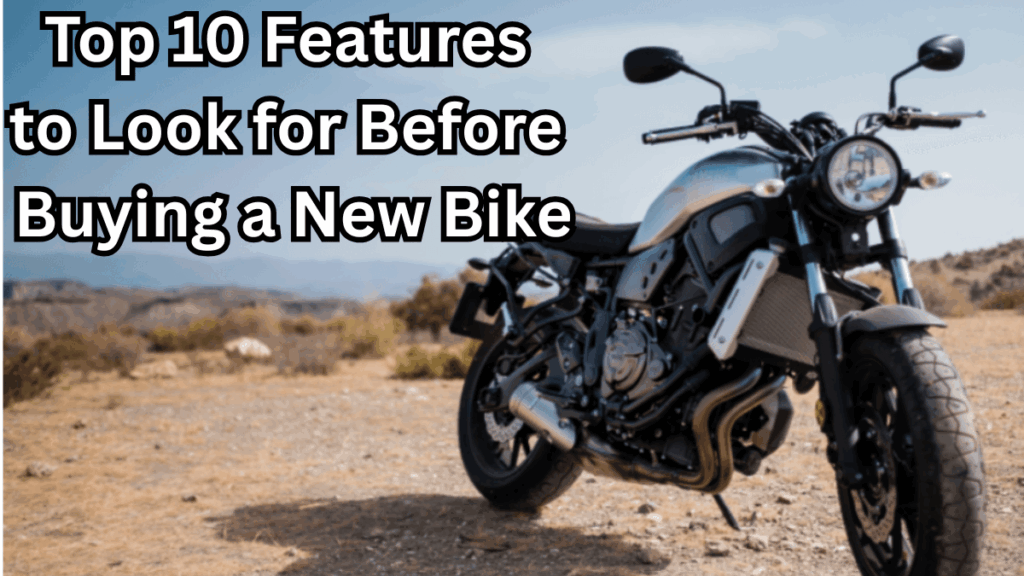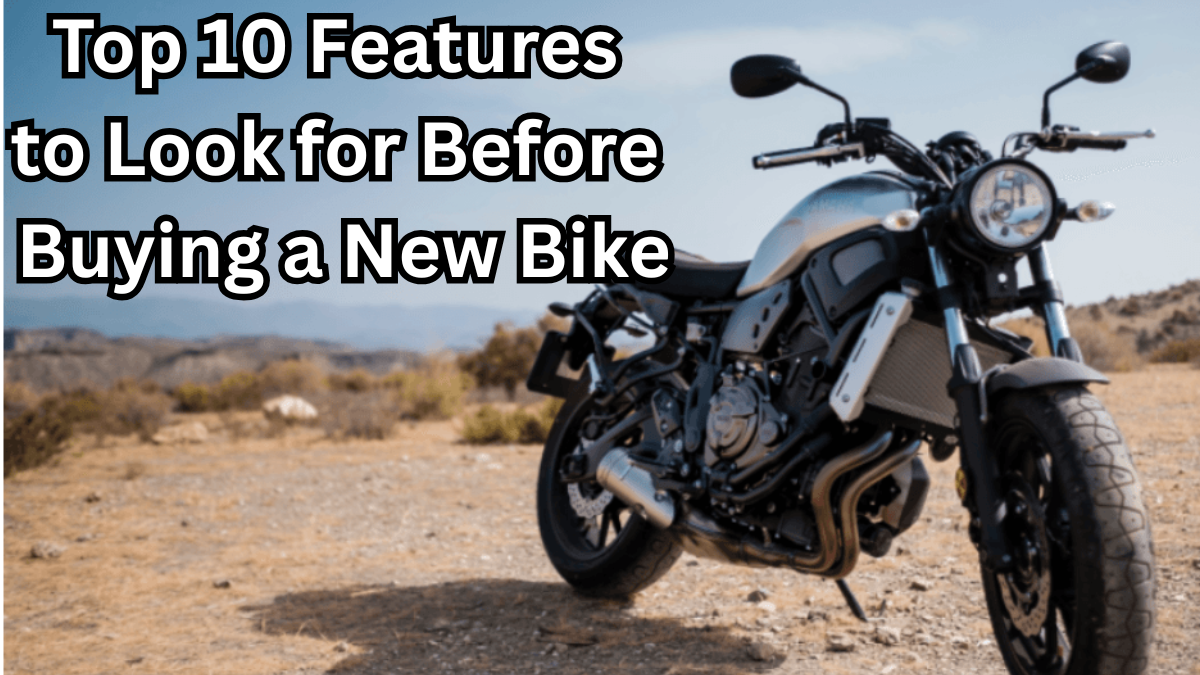Buying a new bike is exciting, whether it’s your first ride or an upgrade to something better. But with so many models and styles on the market, how do you pick the right one? Don’t worry—we’ve put together this new bike checklist to help you stay on track.
Whether you’re buying a bike for commuting, long-distance rides, or weekend adventures, this buying guide 2025 outlines the top features to look for in a new bike so you invest in something that suits your style and needs.

Bike Type That Matches Your Lifestyle
Start by deciding how and where you plan to use the bike. Your needs will vary depending on whether you’ll be riding on roads, trails, or both.
| Bike Type | Best For |
|---|---|
| Road Bike | Smooth pavements, speed-focused rides |
| Mountain Bike | Off-road, rugged terrains |
| Hybrid Bike | Daily commutes, occasional trails |
| Electric Bike (E-bike) | Assistance on long or hilly rides |
| Cruiser Bike | Casual, comfortable city rides |
Frame Material
The material of your bike frame impacts the ride quality, durability, and weight.
-
Aluminum – Lightweight and affordable
-
Carbon Fiber – High performance and vibration absorption
-
Steel – Durable and comfortable but heavier
-
Titanium – Lightweight and extremely strong (premium option)
This is a critical box to tick off in your new bike checklist.
Gearing System
How many speeds do you really need? The gearing system controls how well your bike handles hills and flats.
-
Single-Speed – Great for flat city rides
-
Multi-Gear (Up to 21 or 27 gears) – Perfect for mixed terrain
-
Internal Gear Hub – Low maintenance and easy shifting
If you’re a beginner, consider a bike with fewer gears and a simple setup.
Brake Type
Safety first! Brakes are essential, especially in urban or hilly areas.
| Brake Type | Pros | Best For |
|---|---|---|
| Rim Brakes | Lightweight, affordable | City and casual riding |
| Disc Brakes | Stronger in wet conditions, better control | Off-road and high-speed |
| Hydraulic Discs | Smooth and powerful braking | Professional and mountain |
Bike Weight
Lighter bikes are easier to handle and carry, especially if you live in a building with no elevator. On the flip side, heavier bikes can offer more stability. Think about your lifestyle—will you be carrying it up stairs often?
Comfort and Fit
Always test the fit of the bike before buying. A good fit reduces fatigue and prevents injury. Check:
-
Saddle height and cushioning
-
Handlebar position
-
Frame size (based on your height)
-
Suspension (front or full, if needed)
Don’t ignore this part of the buying guide 2025—comfort is non-negotiable.
Integrated Accessories
These extras might seem small, but they make your ride smoother and more convenient.
-
Built-in lights
-
Rear racks or baskets
-
Kickstands
-
Water bottle holders
-
Mudguards
They’re especially important if your bike will be your main mode of transport.
Maintenance & Serviceability
Ask yourself: how easy is it to maintain this bike? Opt for bikes with:
-
Easily available spare parts
-
Tool-free adjustments
-
Support from local service centers
This should definitely be on your new bike checklist.
Security Features
With rising theft cases in cities, a bike with built-in security features can save you stress.
-
Integrated locks
-
GPS tracking
-
Lockable battery (for e-bikes)
Price vs. Value
Don’t just go for the cheapest or most expensive bike. Look for value instead:
| Price Range | What You Get |
|---|---|
| Under $500 | Entry-level with basic features |
| $500–$1,000 | Mid-range bikes with decent components |
| $1,000+ | Premium performance, great for enthusiasts |
Remember: you get what you pay for. Consider longevity, comfort, and features as part of the total value.
Recap: The Ultimate New Bike Checklist
Here’s a quick summary to guide you on your journey:
-
Choose the right bike type
-
Pick a frame material that suits your ride
-
Opt for a suitable gearing system
-
Select brake types for safety
-
Factor in the bike weight
-
Focus on comfort and fit
-
Look for useful accessories
-
Check ease of maintenance
-
Don’t skip security features
-
Evaluate price vs. value
All these are the top features to look for in a new bike, helping you make a well-informed decision in 2025 and beyond.
FAQs
What is the most important feature to consider in a new bike?
It depends on your usage, but comfort and proper bike fit should be your top priority. Without that, even the best features won’t feel right.
Are disc brakes worth the extra cost?
Yes, especially if you ride in wet conditions or need more control during descents. They offer better stopping power and require less hand strength.
How do I know what size bike I need?
Most bike brands offer size charts based on your height and inseam. Test-riding different sizes is the best way to find the perfect fit.
Is it better to buy online or from a bike shop?
Buying from a local shop allows you to test the bike, get expert guidance, and receive after-sale service. Online can be cheaper but may lack that personal touch.
Click here to learn more
